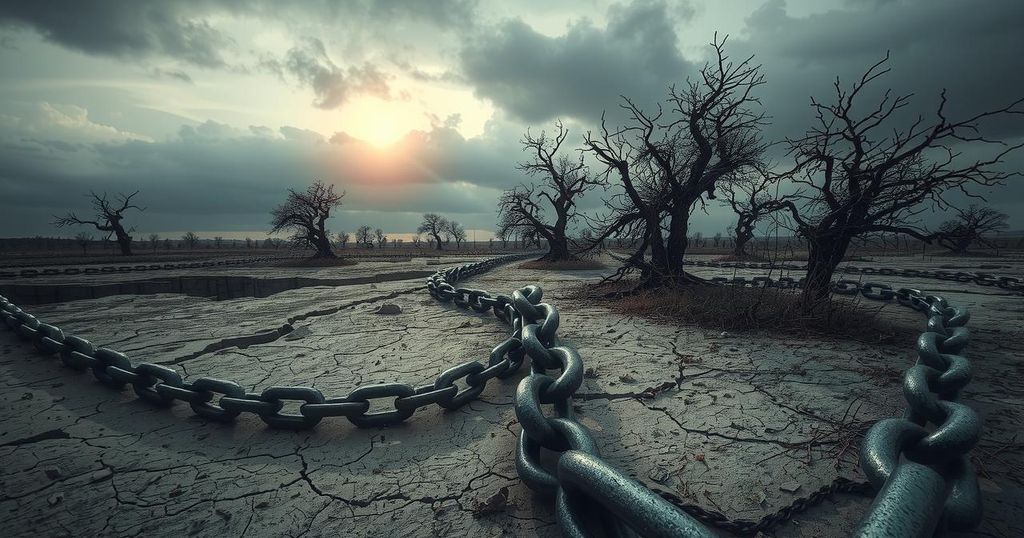The conflict in Sudan has resulted in at least 20,000 deaths and humanitarian crises affecting millions. Children suffer severely, and sexual violence remains rampant. International peace initiatives have failed, and the Sudanese government has rejected external intervention. The African Union is urged to act to protect civilians in alignment with its mandate and prevent further loss of life.
The ongoing conflict in Sudan symbolizes the depths of human suffering, with over 20 months of violence claiming at least 20,000 lives and displacing millions. The paramilitary Rapid Support Forces (RSF) and the Sudanese army (SAF) have left approximately 25 million individuals in dire need of humanitarian assistance.
Amidst this chaos, children are particularly vulnerable, with medical agency Doctors Without Borders reporting severe injuries among minors. A recent case involved an 18-month-old boy, Riyad, whose life hangs in the balance following a gunshot wound caused by stray fire.
Sexual violence has surged amid the conflict, with credible reports from the UN implicating both the RSF and SAF in crimes against women and children. The humanitarian crisis is exacerbated by the stigma and lack of medical support for survivors, further deepening the suffering of those affected.
International efforts to broker peace have proven ineffective, with agreements failing to halt hostilities or protect civilians. Although multiple diplomatic initiatives have taken place, including the Jeddah Declaration aimed at civilian protection, the violence persists unabated.
The UN has called for an international peacekeeping force to ensure civilian safety, highlighting the urgency of intervention. However, the Sudanese government has consistently rejected external assistance, framing it as a threat to national sovereignty even as conflict rages on.
The African Union holds a critical choice; it can either remain passive as atrocities continue or act decisively to protect civilians in Sudan. Legally, the AU is empowered to intervene under grave circumstances, which clearly apply to the current situation in Sudan.
Understanding the severe human rights violations occurring in Sudan is paramount, as is the acknowledgment that the AU has the capacity to organize a meaningful response. With careful planning and adequate troop mobilization, the AU can make a tangible difference.
The situation in Sudan is a litmus test for the African Union’s commitment to its mandate, and it must not fail the people of Sudan. The potential for peace and protection hinges upon immediate and effective intervention, reaffirming the AU’s role as a force for good on the continent.
Sudan has been embroiled in conflict for over 20 months due to fighting between the paramilitary RSF and the SAF. This battle has caused immense loss of life and a humanitarian crisis affecting millions. Children and women are disproportionately impacted, suffering both physical and psychological trauma exacerbated by sexual violence. The international community has struggled to intervene effectively, highlighting the complexity of humanitarian needs and sovereignty issues in Sudan.
In conclusion, the dire humanitarian situation in Sudan demands urgent action from the African Union and the international community. The ongoing violence presents a moral imperative for intervention under the AU’s mandate to protect civilians. Failure to act not only endangers the lives of Sudan’s most vulnerable populations but also undermines the credibility of the AU in its mission to foster peace and security on the continent.
Original Source: www.aljazeera.com






